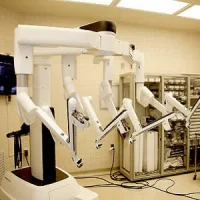Evolving technology is seen paving the way for wider use of precision medicine in patient care. Further, more cost-effective gene sequencing and federal projects such as the Precision Medicine Initiative and the Cancer Moonshot help to advance progress in this field.
However, there are also substantial obstacles facing personalised medicine, including the high cost of drugs for precision oncology, lack of widespread interoperability, skepticism on the part of some clinicians and challenges related to patient engagement.
Paul Cerrato, a healthcare journalist, has observed that "there's quite a bit of skepticism, and criticism of the whole concept that precision medicine should have such an important role in patient care." For some clinicians, precision medicine has limited applications in the real-world care settings, while others say they already provide personalised care on a daily basis.
"We're talking about something much more sophisticated and much more involved: genomics and microbiome and lots of other risk factors. The average doc might be personalising medicine by switching from one antibiotic to another, or asking patients if they have liver disease before they decide to use a statin, or those kinds of things. That's personalisation, but those are the baby steps," Cerrato points out.
As regards cost, he said there's some substance the objection of some thought leaders in clinical medicine that precision medicine entails too much cost. "You look at the cost of precision medicine drugs that have been coming out the past couple years – they're really astronomical," he noted. "And the return on investment, very often, is limited, especially in cancer care," where hugely expensive drugs are sometimes only able to prolong life for a few months or a year. ""It's a work in progress," he added.
Technology also poses big challenges. For one, interoperability remains elusive. This problem must be addressed so precision medicine can move forward, according to Cerrato. In addition, EHRs lag in their ability to handle data-intensive genomics. "Right now we're not at the stage where a physician can just open up his electronic health record and say 'OK, what does this patient's gene sequencing look like?' We're not there yet," explains Cerrato.
Most precision medicine and genomics work is still being done at advanced academic medical centres such as Beth Israel Deaconess Medical Center.
John Halamka, MD, who is CIO at Beth Israel Deaconess, shares how his wife (Kathy) was successfully treated for breast cancer with help from some sophisticated precision medicine tools and techniques. Kathy's treatment benefited greatly from technologies such as Clinical Query 2, software at BIDMC that allows physicians to see anonymised health records of cohorts of patients, tailored by different demographic and clinical parameters.
"It looks at all the patients who have had similar signs and symptoms and lab values and shows what were the treatment recommendations for those patients," said Cerrato. "It allowed the oncology team to individualise the care for Kathy so it would meet her needs, while eliminating the possibility of her getting treated with a protocol that would do more harm than good."
Cerrato and Dr. Halamka just finished a book together, Realizing the Promise of Precision Medicine, due to be published by Elsevier in October. In it, they offer some insights into Kathy's treatment, but focus more generally on the transformative potential of personalised care, exploring the role of electronic health records, patient-facing mobile apps, health information exchange and more.
Source: Healthcare IT News
Image Credit: Pixabay
Latest Articles
Technology, precision medicine, patient care, gene sequencing
Evolving technology is seen paving the way for wider use of precision medicine in patient care. Further, more cost-effective gene sequencing and federal projects such as the Precision Medicine Initiative and the Cancer Moonshot help to advance this progre










